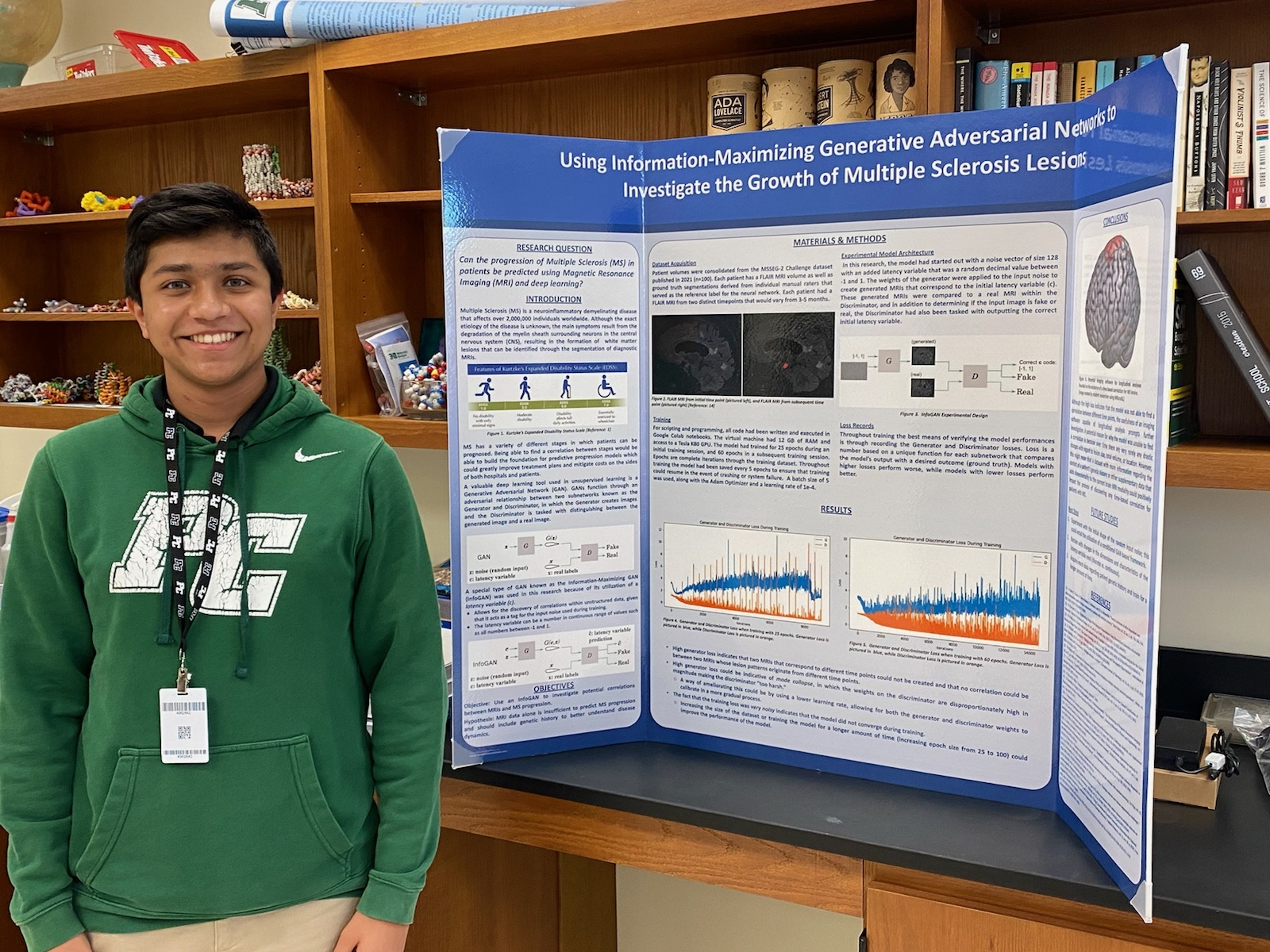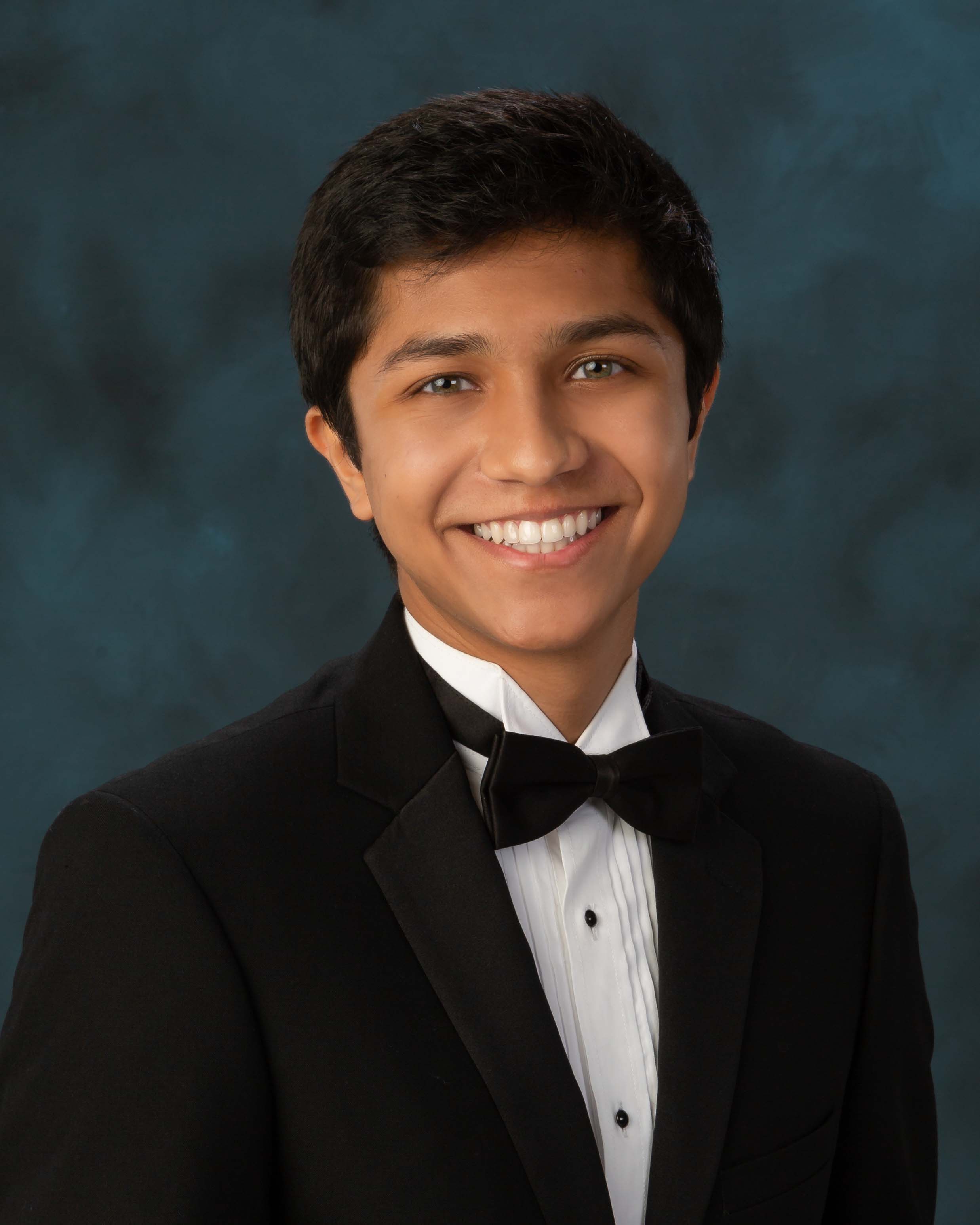It is no exaggeration to say that Shaurnav Ghosh ’22 is a global citizen.
“I've been moving around my whole life,” Shaurnav says. “I was born in Dhaka, Bangladesh in India. We lived there for the first six months of my life, then lived in Japan for another six months. We then moved to Arkansas, Ohio, Texas, Georgia, South Carolina, Tennessee, Massachusetts, back to Tennessee, back to Massachusetts, Staten Island, New York, and finally to Florida.”
Now living in Parkland, Shaurnav believes that “for the most part, my parents are settled. I don’t think either of them are interested in shoveling snow as they get older!”
Shaurnav goes on to explain how his parents’ paths have affected his own.
“My parents epitomize the idea of rags to riches,” Shaurnav says. “They both grew up in India very poor and started with very little. He explains that education was the one thing both his parents’ families placed value on. “They knew they wanted to create a better life outside of Bangladesh so the immigrant dream of moving to America for more education and greater opportunities was really prominent in their lives.” The desire for a quality education is what landed Shaurnav and his brother Aanik ’27. “When my parents moved to Florida because of work, I think my dad literally Googled ‘best school in the area,’ and Pine Crest is what popped up. So here I’ve been since the ninth grade.”
In four short years at Pine Crest, Shaurnav has accomplished a great deal and left quite the mark. As time has passed from his freshman year to now, he’s been able to really refine his work.
At the end of his freshman year, Shaurnav applied to become a member of the Pine Crest Upper School Science Research Program. It is a three-year commitment, applied as a 45-minute elective. Students in the program develop their science research skills through project-based learning, which culminates in the Junior Science and Engineering and Humanities Symposium (JSEHS). But, as Shaurnav explains, his time in the program has not been without its challenges.
“I actually didn’t know what I wanted to do until about two years ago,” says Shaurnov. “I always gravitated toward STEM and sciences, but after taking AP Biology, I realized that I liked the idea of interdisciplinary and conjunctive applications.” Specifically, Shaurnav decided to explore how computer science can impact the medical and clinical environment. “It’s that gray area where I found my passion and the focus of my research,” he says.
“What makes my experience even more unique and adaptive was the hardball that was COVID, which happened during my sophomore year,” he continues. “It was incredibly challenging to actively conduct research and engage in experimentation without access to a lab. The time forced me to become really reflective and really proficient with computer science, but I hadn’t found the right outlet yet. I didn't know what I wanted to do with it at that point in time. That's when I started looking at virtual and remote summer programs.”
Shaurnav found a computational biology program, which seemed interesting to him. His focus at the time was neurodegenerative diseases. “I was really fascinated by things like Multiple Sclerosis (MS), Parkinson’s Disease, and Huntington’s Disease because of their complexity. I worked virtually with my mentor at the iResearch Institute and got the majority of my first project done.”
Moving into junior year, Shaurnav found himself staying busy, participating in the Sigma Xi annual student conference, the Florida Junior Academy of Science Presentation, the Broward County Science Fair, the State Science Fair, and the International Science Fair.

This year as a senior, Shaurnav has worked closely with a professor from Florida International University (FIU) who works in neuromorphic computation. “We developed and wrote the manuscript of my paper which I published in September of this past year. My project this year has been the most ambitious of all.”
He is referring to his science research work, titled “Using Convolutional Encoder Networks to Determine the Optimal Magnetic Resonance Image (MRI) for the Automatic Segmentation of Multiple Sclerosis.” In layman’s terms, Shaurnav is using artificial intelligence (AI) and deep learning software to determine the best MRI to detect lesions formed in the brains of MS patients.
When asked why he has focused on MS, Shaurnav explains that “it’s such a complicated disease. A few years ago, back in Bangladesh, my grandfather passed away as a result of an acute ischemic stroke. In developing countries, they could benefit so much from access to the technology and medical institutions that we are so fortunate to have. Thinking about the role that medical software can play in a global sense motivated my desire to look at the neurodegenerative diseases that are so taxing on the clinical environment.”
Though Shaurnav could easily parlay his work into attending medical school, he feels it translates more directly into the commercialization and development of software. “I don’t see myself assuming a practitioner/physician role. But I do want to interact closely with them in developing tools and solutions that can best aid them.”
While many of his contributions have been tied to mathematics, technology, and medical research, the scope of Shaurnav’s interests and abilities is vast, and the Pine Crest teachers that have been with him throughout his journey have left a powerful impact.
“Ms. Gordinier is my science research adviser and mentor. She taught me the fundamental ideas of being curious and inquisitive about everything. Having Ms. G alongside me on this journey has been very cool. Similarly, Mr. Perez, my computer science teacher since tenth grade, showed me the value in inquisitive thinking. He encouraged me to put deeper thought into my math.”
“The chair of Upper School math department, Ms. Hernandez, has been my teacher for both of my calculus classes. We like to call her ‘math mom.’ She hosts dedicated brownie Thursdays, where we have brownies after the lesson and just talk about life. I’ve never met anyone so passionate about what goes above and beyond someone’s intellect—that idea of character and integrity, and all these tenets of someone’s identity. She’s helped us all remain positive in the wake of the last two years.”
Despite the intensity of Shaurnav’s studies, he does make time for other interests and hobbies. “I am part of the orchestra [I play the violin] and chorus. I like making music in my spare time. I spent a lot of time during quarantine just matching up keys and notes on our piano—writing intervals and things I thought sounded nice. I wasn’t trying to learn piano, I just found it interesting.” Shaurnav also finds time to participate in some pretty “typical” teenage activities. “I love messing around with my two-year-old dog Teddy. I also play video games, and that’s a great way to connect with my friends back in New York.”
Shaurnav will be attending Stanford University in the fall, but he will be sure to keep himself busy in the coming summer months. “I’m always working on side projects. Next up, I’d like to explore more AI. I’m trying to come up with stock market models, and tweaking other models I’ve worked on. I’ll be looking for internships over the summer to stay occupied because I get bored easily.”
Sifting through his time at Pine Crest to come up with his favorite memory, Shaurnav describes an experience totally unrelated to anything mathematical, medical, or scientific. “This year, one of my friends convinced me to join the Indian Heritage Club on a whim. Every year the club performs a really beautiful, intricate traditional dance for the school. I’m not a dancer, but it was such a fun experience. It was nice learning the technique, going in after school every day, and hanging out with my friends. The experience of being on stage reminded me of how much I love performing.”
Shaurnav does have some advice he’d share with those coming up behind him. “There is a quote that I’ve heard periodically over the years. It says ‘there’s nothing worse in life than wasted potential or wasted talent.’ When you come to a school like Pine Crest where the opportunities are tenfold and potential is everywhere, my advice to anybody is to absorb everything. Be a sponge.”
As he looks to the future, Sharunav encourages students to take full advantage of all that Pine Crest has to offer. “You have all of these golden experiences right in front of you, and sometimes all you have to do is send an email or put your name on a roster. In doing that, you find yourself surrounded by really amazing, diverse groups of people. In the process, you get to know yourself that much more. This time and this kind of potential is something you don’t want to go to waste.”
